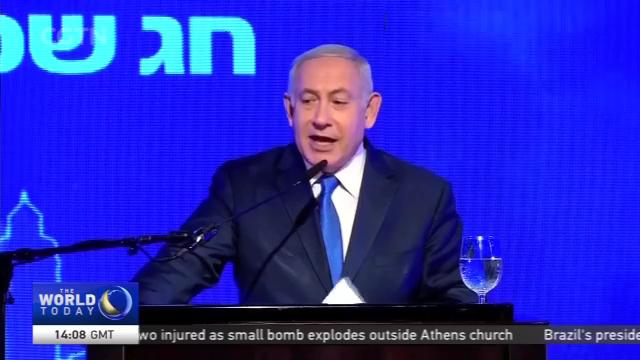
22:27, 27-Dec-2018
Early Election: Israeli parliament sets April 9 as election date
Updated
21:21, 30-Dec-2018
01:59

Israel's parliament has voted to dissolve itself, formally setting April the 9th as the date for elections. Opponents of Prime Minister Benjamin Netanyahu are accusing him of using the election in an attempt to avoid prosecution in three corruption cases. Our correspondent Stephanie Freid has more from Tel Aviv.
The parliament vote makes it official: Israel's government is dissolved and early elections are set for April 2019. Elections were scheduled for November. So why go to the polls half a year early?
STEPHANIE FREIDTEL AVIV "Israel is headed to early elections for a host of reasons that go beyond an immobile coalition. Reasons include a possible pending indictment for the country's prime minister."
Prime Minister Netanyahu is linked to a stack of corruption charges that he denies.
BENJAMIN NETANYHAU ISRAELI PRIME MINISTER "You know how it will turn out: Nothing will happen because there's nothing there and there never was."
Early elections could put the attorney general's indictment on hold so as NOT to influence voters.
On the surface the breakpoint that pushed the government over the edge was coalition discord over a bill mandating military service for ultra-Orthodox Israelis.
But Israel's farthest right government - ever - just doesn't see eye to eye - mere weeks ago the defense minister resigned over a ceasefire agreement with Gaza.
Timing-wise, an early vote plays in the prime minister's favor - opposition competitors have three months to scramble and unite.
The prime minister is the current favorite to win the April election - if he takes it again, Mr. Netanyahu is on track to being Israel's longest-serving premier with a consecutive term of ten years. STEPHANIE FREID, CGTN, TEL AVIV.

SITEMAP
Copyright © 2018 CGTN. Beijing ICP prepared NO.16065310-3
Copyright © 2018 CGTN. Beijing ICP prepared NO.16065310-3